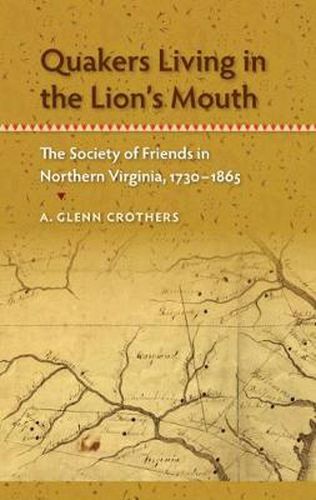Readings Newsletter
Become a Readings Member to make your shopping experience even easier.
Sign in or sign up for free!
You’re not far away from qualifying for FREE standard shipping within Australia
You’ve qualified for FREE standard shipping within Australia
The cart is loading…






This title is printed to order. This book may have been self-published. If so, we cannot guarantee the quality of the content. In the main most books will have gone through the editing process however some may not. We therefore suggest that you be aware of this before ordering this book. If in doubt check either the author or publisher’s details as we are unable to accept any returns unless they are faulty. Please contact us if you have any questions.
A major contribution to our understanding of the American South and the history of American religion and reform. –Dee E. Andrews, author of The Methodists and Revolutionary America, 1760-1800
A model study of an antislavery, reformist minority trying to find its place in the Antebellum South. –Thomas D. Hamm, author of The Transformation of American Quakerism: Orthodox Friends, 1800-1907
This examination of a Quaker community in northern Virginia, between its first settlement in 1730 and the end of the Civil War, explores how an antislavery, pacifist, and equalitarian religious minority maintained its ideals and campaigned for social justice in a society that violated those values on a daily basis.
By tracing the evolution of white Virginians’ attitudes toward the Quaker community, Glenn Crothers exposes the increasing hostility Quakers faced as the sectional crisis deepened, revealing how a border region like northern Virginia looked increasingly to the Deep South for its cultural values and social and economic ties.
Although this is an examination of a small community over time, the work deals with larger historical issues, such as how religious values are formed and evolve among a group and how these beliefs shape behavior even in the face of increasing hostility and isolation.
As one of the most thorough studies of a pre-Civil War southern religious community of any kind, Quakers Living in the Lion’s Mouth provides a fresh understanding of the diversity of southern culture as well as the diversity of viewpoints among anti-slavery activists.
$9.00 standard shipping within Australia
FREE standard shipping within Australia for orders over $100.00
Express & International shipping calculated at checkout
This title is printed to order. This book may have been self-published. If so, we cannot guarantee the quality of the content. In the main most books will have gone through the editing process however some may not. We therefore suggest that you be aware of this before ordering this book. If in doubt check either the author or publisher’s details as we are unable to accept any returns unless they are faulty. Please contact us if you have any questions.
A major contribution to our understanding of the American South and the history of American religion and reform. –Dee E. Andrews, author of The Methodists and Revolutionary America, 1760-1800
A model study of an antislavery, reformist minority trying to find its place in the Antebellum South. –Thomas D. Hamm, author of The Transformation of American Quakerism: Orthodox Friends, 1800-1907
This examination of a Quaker community in northern Virginia, between its first settlement in 1730 and the end of the Civil War, explores how an antislavery, pacifist, and equalitarian religious minority maintained its ideals and campaigned for social justice in a society that violated those values on a daily basis.
By tracing the evolution of white Virginians’ attitudes toward the Quaker community, Glenn Crothers exposes the increasing hostility Quakers faced as the sectional crisis deepened, revealing how a border region like northern Virginia looked increasingly to the Deep South for its cultural values and social and economic ties.
Although this is an examination of a small community over time, the work deals with larger historical issues, such as how religious values are formed and evolve among a group and how these beliefs shape behavior even in the face of increasing hostility and isolation.
As one of the most thorough studies of a pre-Civil War southern religious community of any kind, Quakers Living in the Lion’s Mouth provides a fresh understanding of the diversity of southern culture as well as the diversity of viewpoints among anti-slavery activists.